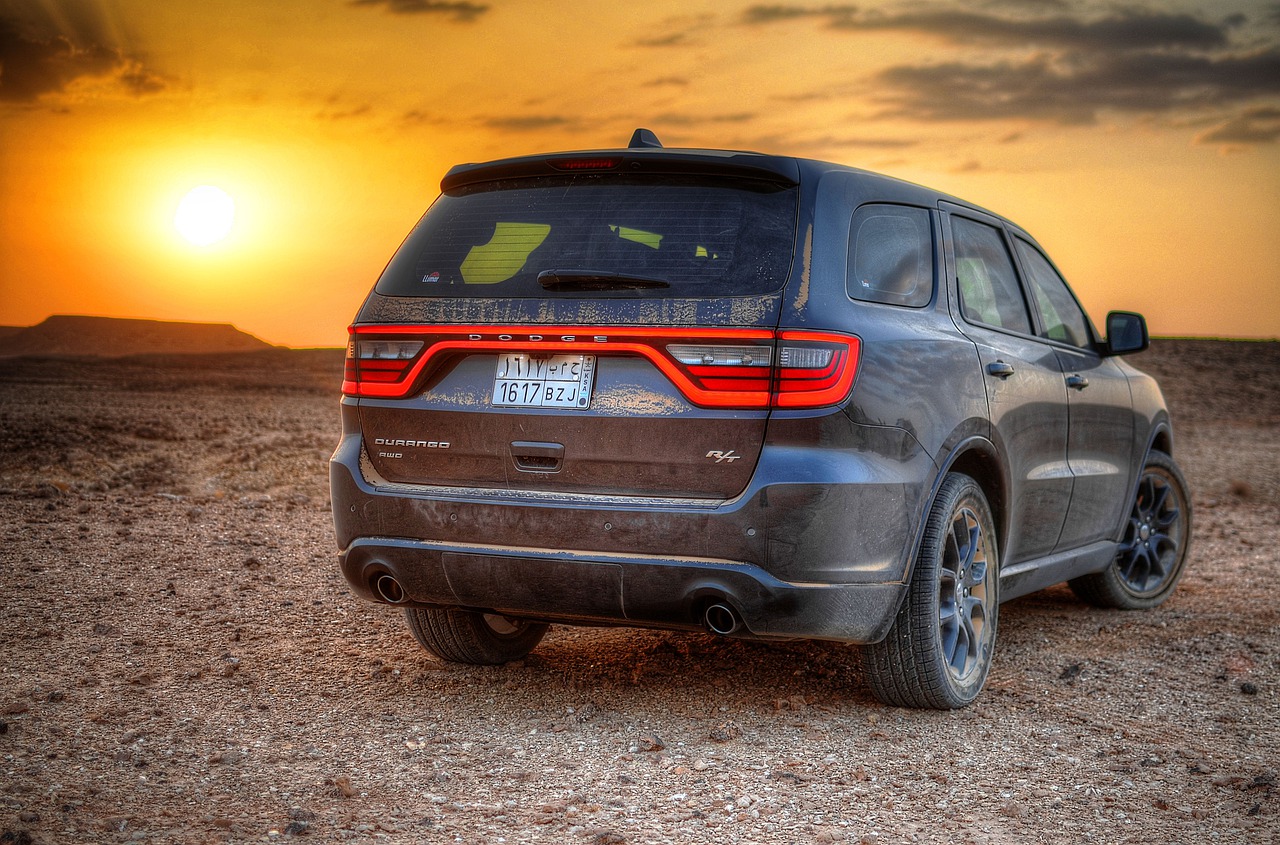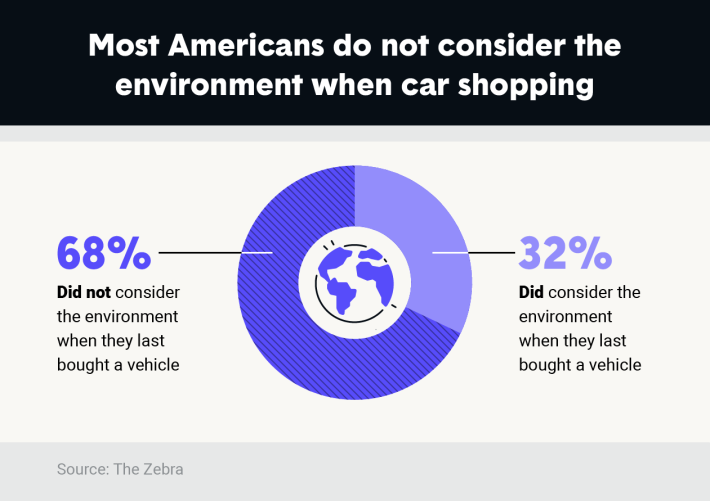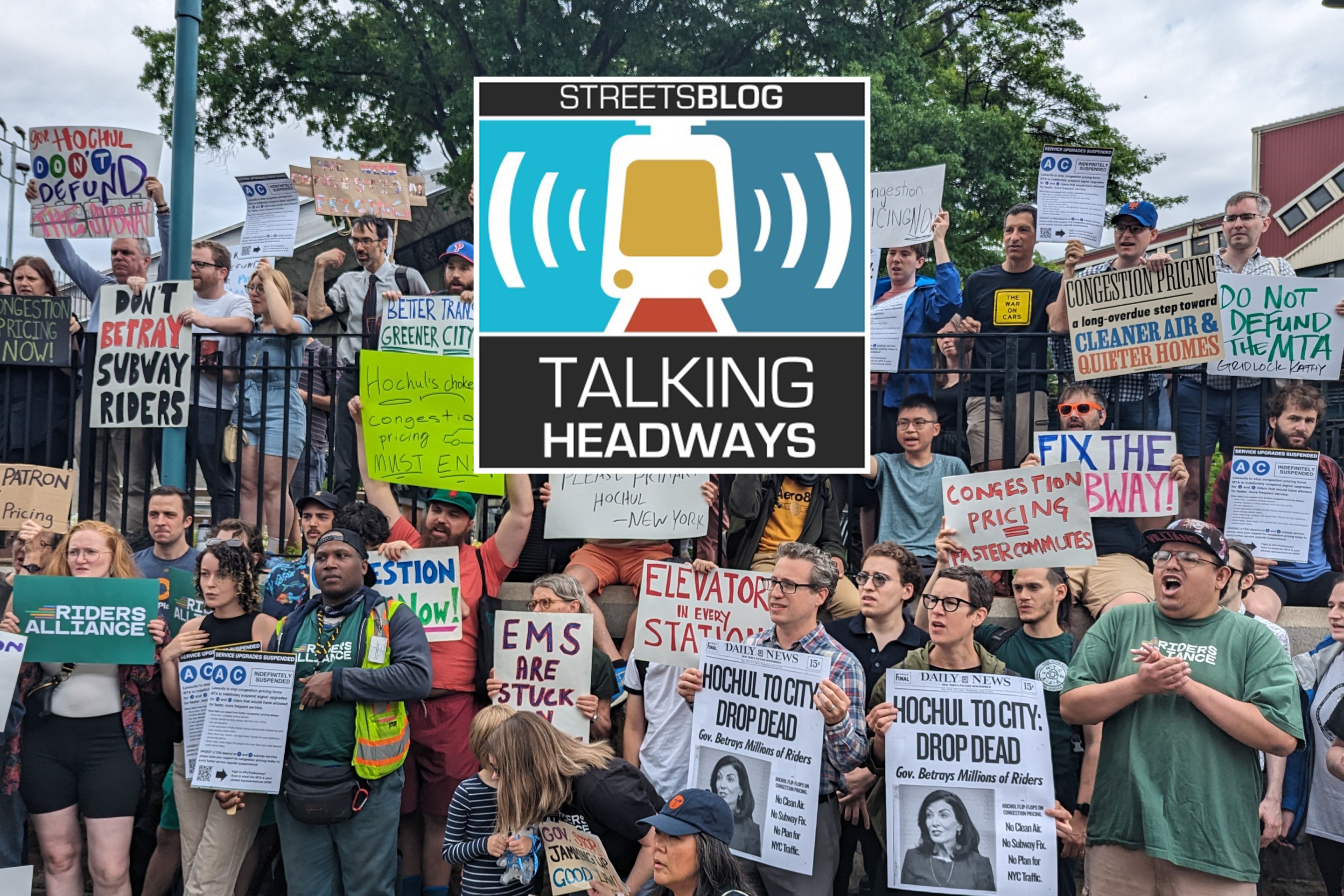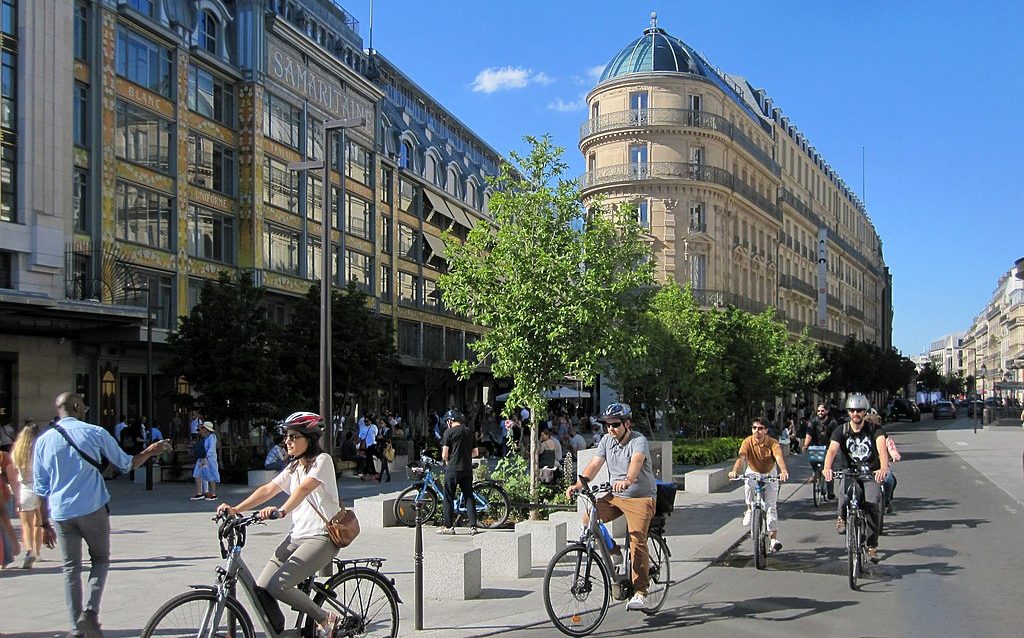American car buyers aren't putting their money where their mouths are on global warming — and policymakers aren't doing much to steer apathetic drivers towards lower-emissions vehicles.
A new consumer survey from the insurance comparison site The Zebra reveals that even though 80 percent of Americans say they're concerned about climate change, a whopping 68 percent of them didn't even consider the environment the last time they bought a new car.
That finding jibes with national trends in car purchasing, which saw a record number of Americans buy vehicles in last year on record that aren't exactly planet-friendly. Gas-guzzling SUVs made up 48 percent of United States car sales in 2018, up from just 27 percent in 2010, according to the International Energy Agency. Over the same period, the carbon impact of those SUVs rose more than any other single segment of the energy sector — even more than heavy machinery operators.
The good news? Electric vehicle sales were up 81 percent last year. But they still represent a tiny share of the massive U.S. market for urban assault vehicles — and the emission-reducing impact of electric, hybrid and even plain-old smaller and more fuel efficient gas-powered vehicles are being negated by the emission-increasing impact of SUVs. The chart below shows that SUV greenhouse gas emissions are rising, even as emissions by all other internal combustion engines ("other ICEs") are dropping.
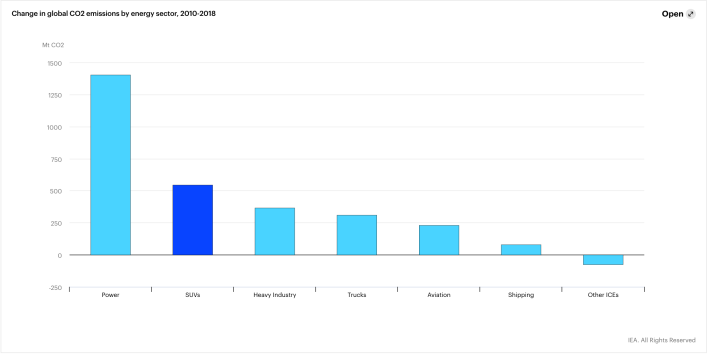
Oh, and by the way: the Trump administration has vowed to roll back key emission standards of the Clean Air Act, so all this will likely get worse.
So why don't Americans think about the future of the planet when they pick out a new whips, — even if they say they want to be a part of preventing global climate catastrophe? And more important, how can policymakers incentivize every driver to choose a hybrid (or better yet, a bus pass) over that Hummer?
Here are just a few factors that Americans routinely rank above the environment when they make their transportation choices — and a few thoughts on how we can use policy and culture to put preventing climate change at the front of car shoppers' minds.
Historically low fuel prices
It's a heck of a lot easier to justify buying a car that only gets 13 miles to the gallon when you're not paying very much at the pump. Drivers haven't been charged much more than $3 a gallon since 2014, and petroleum analysts don't expect prices to rise much in the coming year.
Add in the fact that the federal gas tax hasn't been raised since 1993, and drivers have a hell of an incentive to buy the biggest car they can get their hands on — or at least, they have less motivation than ever to pick a more fuel efficient vehicle so they can save at the pump.
Raising the gas tax, as Streetsblog has argued, would be a great start. Reckoning with the root causes of why gas itself is so cheap is more complicated, but there's a lot that can be done to unwind at least some of the vast landscape of direct and indirect federal subsidies to fossil fuel production. Those include $1.59 billion in yearly deductions for fossil fuel drilling costs, roughly $1.27 billion a year in a tax loophole that lets oil companies treat foreign income tax as a fully deductible expense, billions dollars more in research and development subsidies.
The (false) perception that large vehicles are safer
Ask an SUV driver why he or she chose such a car, and there's a good chance the owner will spit some statistics about crash tests that he or she doesn't understand is willfully misunderstanding.
But that doesn't take into account the question of who SUVs are safer for: if an SUV driver hits a person on foot with the assault car, that driver is 2.5 to 3 times more likely to kill the pedestrian.
"It's a myth that SUVs are safer than cars," said Keith Bradsher, a New York Times journalist who won a Polk award for his reporting on SUVs. "People in SUVs die just as often as people in cars; they just die differently. They are more likely to die in rollovers, and they are much more likely to kill other people."
Still, the auto industry has spent a small fortune on ads to to convince drivers that an SUV that looks like a military tank will feel that safe in a crash. Experts say our tax code should acknowledge the outsized danger SUVs pose to the rest of the people on the road — and discourage SUV purchases with a fee, much like "sin taxes" that discourage cigarettes and alcohol use. Econometrician Chris Auld cites several studies that suggest a tax of $2,500 to $4,500 might be an appropriate corrective tax for SUVs costs to society.
Dealership prices
Electric and hybrid versions of SUVs and their gas-guzzling brethren will save you money at the pump over time, but the up-front costs at the dealership can be overwhelming to car buyers.
Here's the math: A 2019 Toyota Rav 4, America's most popular SUV last year, has a manufacturer's suggested retail price of $25,650, while a hybrid version of the same car costs about $27,850, or about 8.5 percent more. Hybrids aren't eligible for any federal or most state tax credits unless they plug into a wall, which the Rav 4 Hybrid doesn't.
There was an electric version of the RAV 4 that'll was eligible for some tax credits, but it hasn't been in production since 2014 — it cost $42,300 even after the $7,500 federal tax credit.
That's a heck of a financial incentive to de-prioritize the environment in your car-buying decisions, even if you would make up the cost difference in the long run at the pump. Elected officials could make electric vehicles more attractive with tax credits, but that seems unlikely if Trump is re-elected.
Comfort
It might seem a little reductive to point out that big cars are attractive to consumers because ... they're big. Or to be a little more specific, because they're roomy enough for big families, or have ample leg room for a super-tall driver. And don't forget: people just love that panoramic view through the windshield of an Escalade.
"[It's' the command of the road [as they] look out the windows," said Jack Nerad of Kelly Blue Book in an interview with NPR. "And once people get comfortable with that, they don't want to go back into a lower sedan."
Nerad has a point, but there is something that we can do to incentivize luxury travelers to get out of their giant cars: just make more fuel-efficient options better.
That means re-designing transit vehicles to make them comfortable for all users; making biking not just safe and convenient, but an attractive lifestyle choice for those who don't have to do it; we're talking about building neighborhoods full of streets that are a pleasure to walk along, not a dangerous minefield where you're forced to dodge cars with every step.
And honestly, none of those things are luxuries; they should be built by default — owning a 4,799-pound, emissions-spewing private tank and driving it through a public space where it can endanger others should be the thing that society feels is abnormal; a morally indefensible choice. So solving the problem means, yes, disincentivizing the purchase of gas guzzlers — but the longer-term goal must be to take back the narrative itself.
